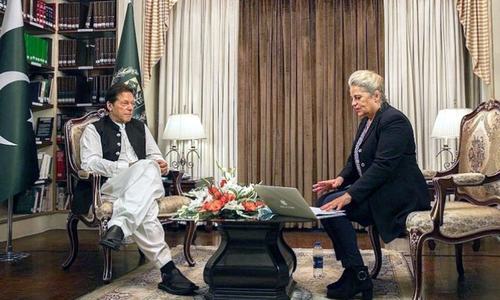PAKISTAN has taken an important step in its counterterrorism efforts with the launch of a dossier that claims to have substantive evidence of India’s active sponsoring of terrorism inside Pakistan. Foreign Minister Shah Mahmood Qureshi and DG ISPR Maj Gen Babar Iftikhar unveiled details that included audio conversations between people identified as Indian intelligence agents and terrorists inside Pakistan.
Payments made by Indian agents in bank accounts for terrorist activities on Pakistani soil are also documented. The dossier details the involvement of Indian intelligence agency RAW in specific incidents of terrorism in various regions of Pakistan leading to substantial loss of precious lives. This dossier was unveiled a day after India unleashed yet another unprovoked attack across the Line of Control resulting in the martyrdom of a Pakistani soldier and five civilians including a teenage girl and a toddler. According to Pakistani officials, Indian forces used heavy-calibre weapons to fire indiscriminately on the civilian population in Azad Kashmir.
The international community should be concerned at this swiftly deteriorating situation. However, it should not be surprised. India’s belligerence and its muscular policy towards Pakistan has been on the rise since Narendra Modi became the prime minister. For years now, India has been consistently painting Pakistan as the source of instability in the region. Successive governments in New Delhi have accused Pakistan of ‘cross-border terrorism’ while whitewashing their own policies of brute repression and human rights violations in India-held Kashmir.
For various reasons, India was able to largely convince the international community that its narrative was correct while Pakistan’s response suffered from credibility issues. It is the right time now for Pakistan to reverse the narrative and make effective use of diplomacy and strategic communication to find international traction for this dossier. The idea of India as a state sponsor of terrorism may be hard for the international community to digest — fed as it appears to be on a diet of slick Indian propaganda backed by the image that the country has crafted for itself — but this is exactly the challenge that Pakistan must accept.
At the same time, Pakistan should be ready to counter any military misadventure from India. The signs emanating from New Delhi project mal-intent. Bellicose rhetoric and threatening posturing from civil and military leaders across the border have sadly become a norm. Added to this is the pressure on the BJP government after the dismal failure of its attempt to control the situation in occupied Kashmir.
India should, however, know by now that if it attempts to cross any red lines, the response is likely to be swift and hard, as was demonstrated earlier in 2019. For the sake of both countries, indeed the region itself, the international community should make India step back before it is too late.
Published in Dawn, November 15th, 2020













































